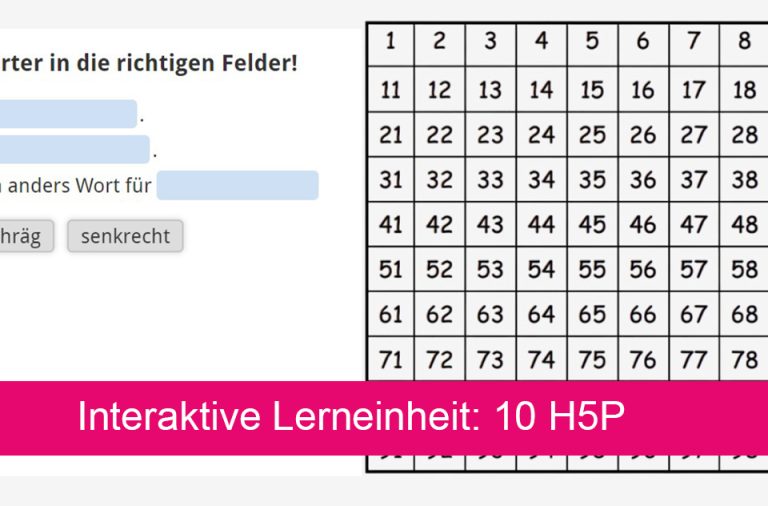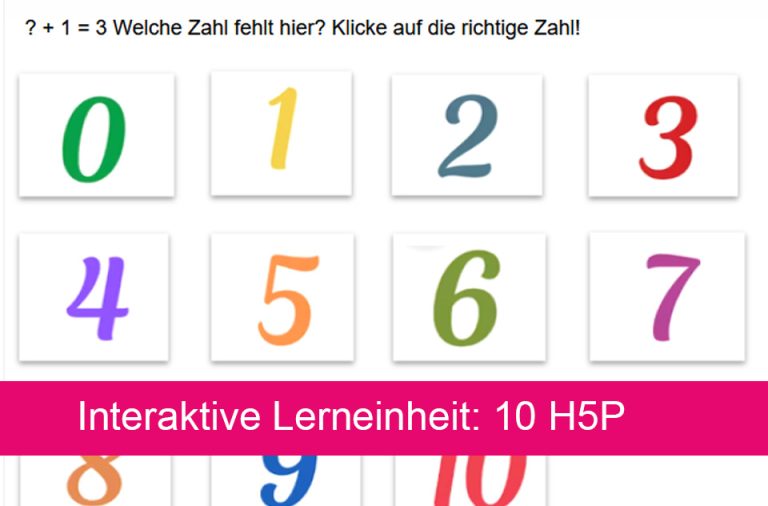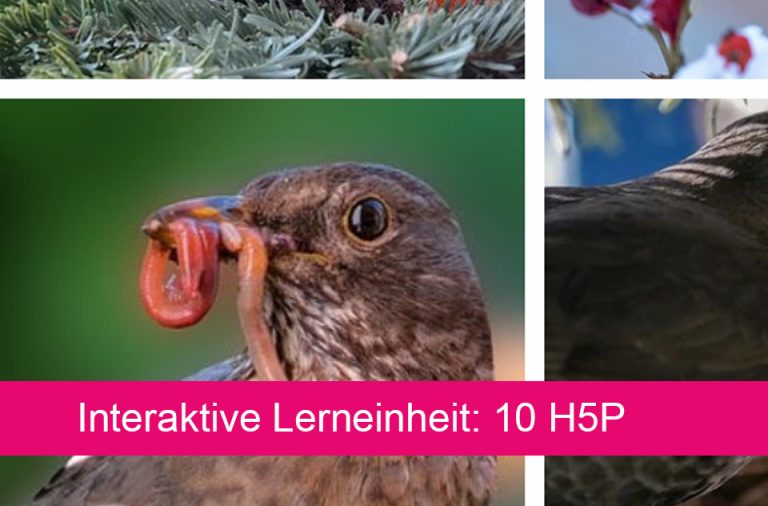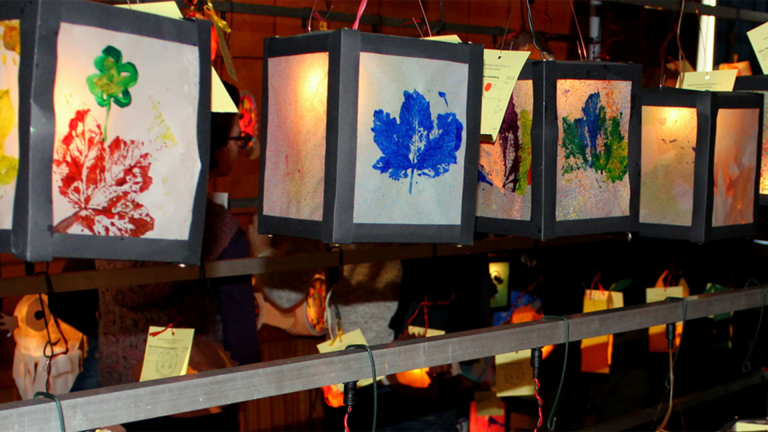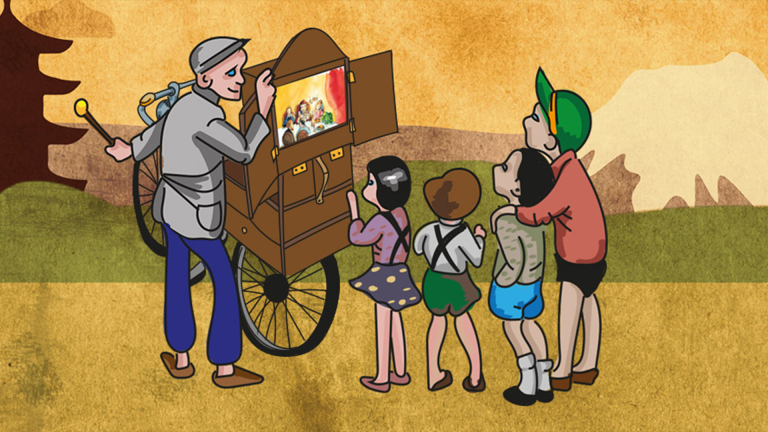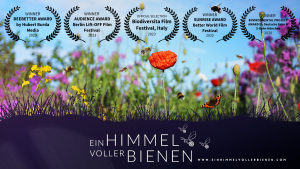Suche:
- # Artistry
- # Biology
- # Chemistry
- # Ecological
- # Economy
- # English
- # Foreign Language
- # Geography
- # German
- # Health
- # History
- # Informatik
- # Latin
- # Mathematics
- # Media Education
- # Music
- # Physics
- # Politics / Civics
- # Preschool
- # Primary School
- # Religion
- # Society
- # Sports
- # Technology
- # Training of Teachers
- # Vocational Education
Lerneinheit Mathematik 3/4
In 10 interaktiven Aufgaben beschäftigen sich die Lernenden mit Aufgabenstellungen bezüglich der Hundertertafel.
Mathematics learning unit 1/2
In our interactive learning unit "Mathematics 1/2 - Calculating up to 10" you will find 10 interactive and didactically prepared tasks on basic arithmetic operations in the number range up to 10.
Learn moreLearning unit subject 4
In our interactive learning unit "Sachunterricht 4 - Blackbird" you will find 10 interactive and didactically prepared tasks on the subject of blackbirds.
Learn moreSaint Martin
Every year on November 11, Saint Martin’s Day is celebrated. This church festival is also referred to as Saint Martin’s Feast.
Learn moreKamishibai
We spend a large part of our lives telling stories. Stories we read, listen to, watch – or tell others ourselves.
Learn moreBean
The word bean refers to both the seeds and the pods surrounding them and often even the whole bean plant. It is not easy to get an overview of the different types of bean plants. Their variety is due to, among other things, their different origins.
Learn moreBlackbirds
The blackbird is one of our most common and best-known songbirds. The nice thing about the blackbird is that it cannot be confused with many other bird species.
Learn moreCommon European Adder
The common (European) adder is extremely wide-spread across the globe.
Learn moreHamsters
Hamsters are small rodents that have four sharp incisors. They are related to mice.
Learn moreHare and Rabbit
How do we distinguish between a hare and a rabbit? At first sight, both look confusingly alike for both have long ears and a stumpy tail.
Learn more


